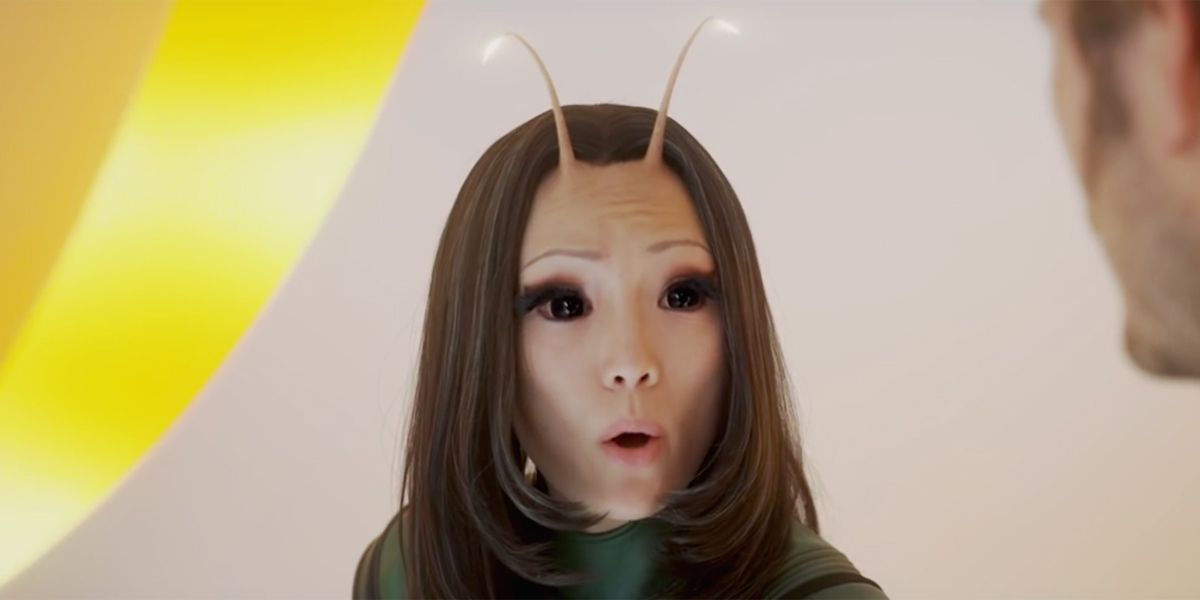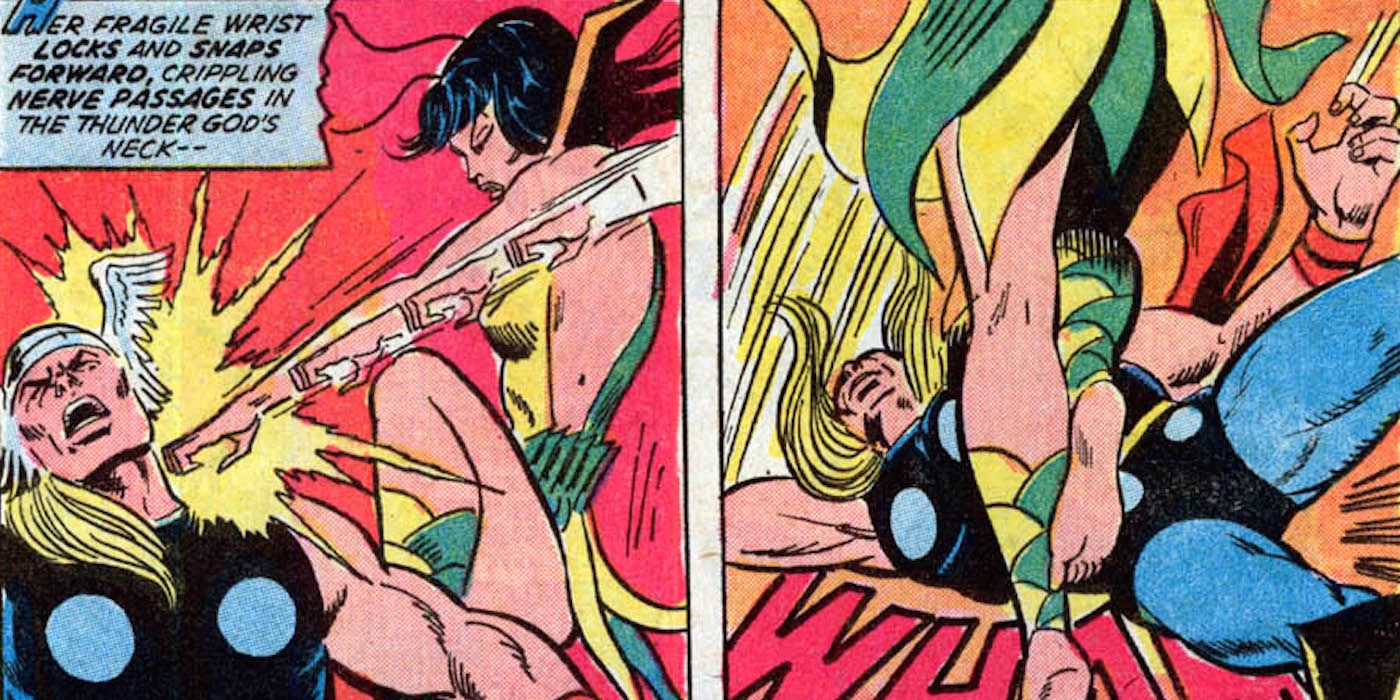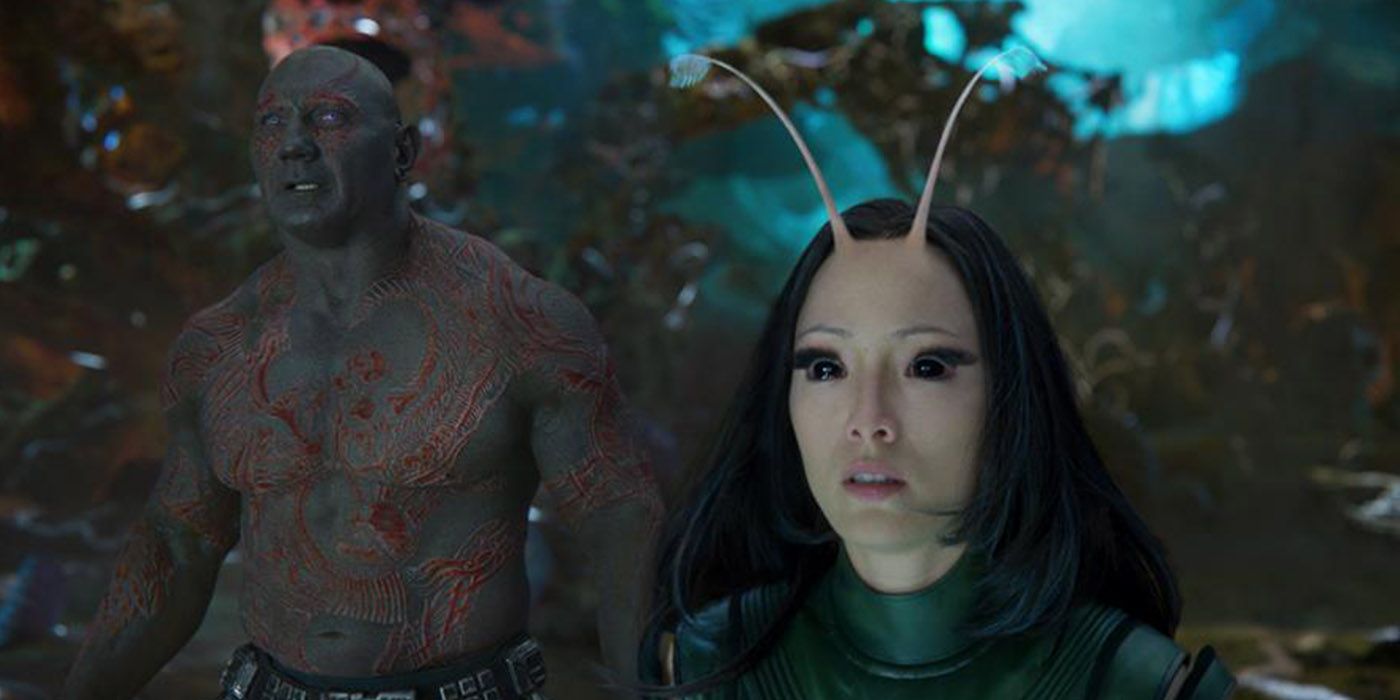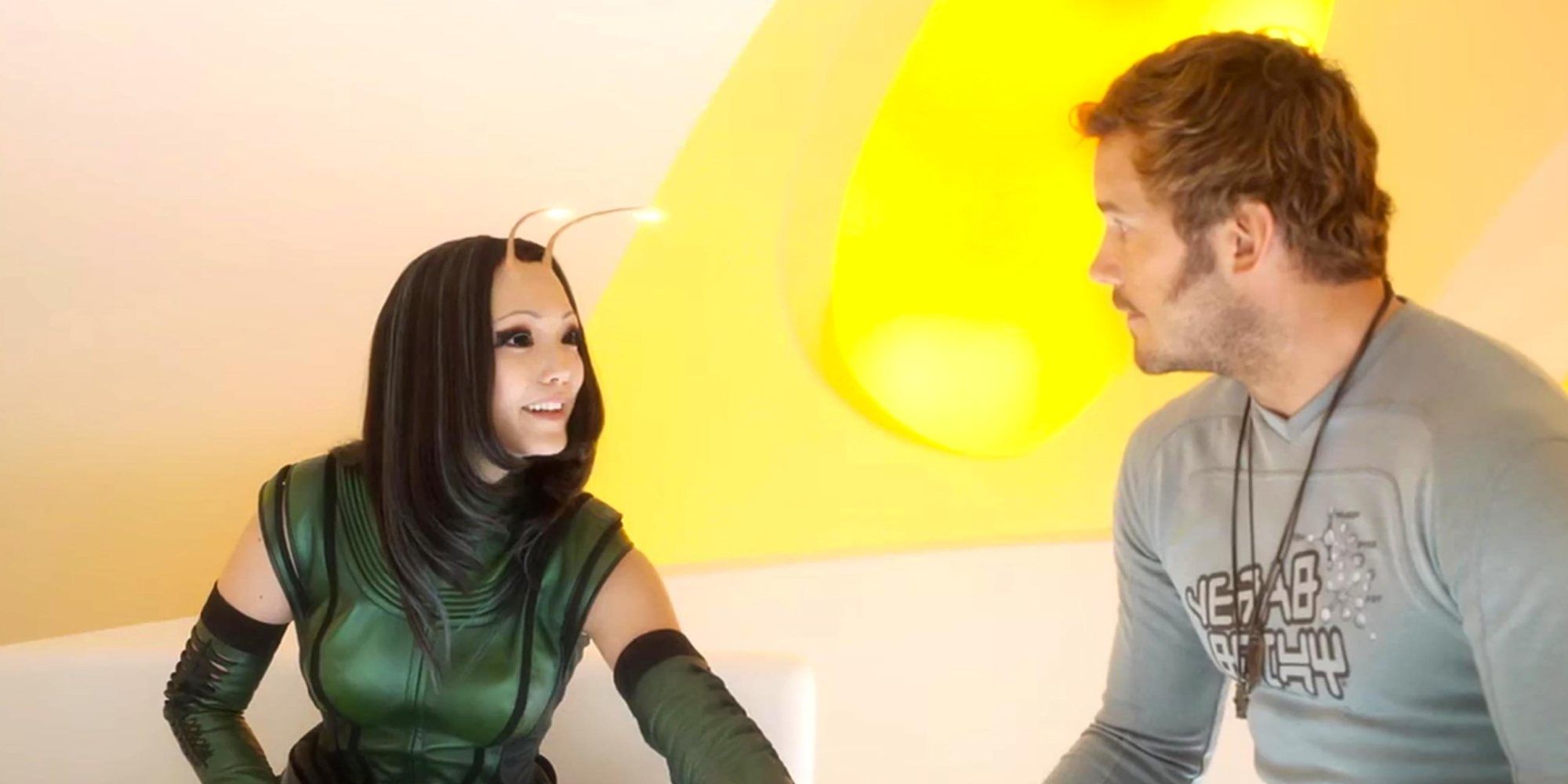After three years of waiting, Guardians of the Galaxy Vol. 2 finally hit theaters last week, with a massive estimated $145 million opening weekend. But, while reviews have been largely positive, the film has faced some criticism for feeling too much like a retread of its predecessor.
Although I personally enjoyed most of the movie, one aspect of it still bothers me several days later: the film's treatment of Mantis. Instead of being a kickass cosmic hero in her own right, the Mantis portrayed in Guardians of the Galaxy Vol. 2 was little more than a stereotype and the butt of numerous jokes.
Mantis was created by Steve Englehart during his 1970s run on Avengers, and she has been featured in much of his work -- both for Marvel and other publishers -- ever since. Mantis was a human woman raised by a Kree cult in Vietnam, where she was prepared for her role as a prophesied "celestial madonna" who would give birth to a powerful cosmic being. In the process, Mantis gained empathic powers, limited precognition, and incredible martial arts skills, which at one point she used to take down Thor. She has traveled the universe with both Silver Surfer and the Guardians of the Galaxy, holding her own all the while.
It was inevitable that Marvel would change a lot about Mantis in bringing her to the MCU. Director James Gunn expressly stated he wanted to keep Peter Quill as the only Guardian from Earth, so it was clear Mantis would have an alien origin. Her celestial madonna roots were likewise too convoluted for a supporting character in a two-hour movie.
The Mantis we get in Guardians of the Galaxy Vol. 2, though, is barely recognizable. Not only is she no longer from Earth, she's also lost all of her connection to the Kree. Instead, Mantis states she was collected by Ego when she was a larva, and then raised by him to be his servant. She does have her empathic powers, but there is no suggestion that she is also precognitive, or that she has any martial training. This Mantis is not a cosmic power in her own right, but a servant who can perform an interesting trick.
Much more worrisome than Mantis' depowering, however, is the dramatic change in her characterization. Mantis was always odd, speaking in the third person and tending to act in ways seen slightly off by her teammates. But she was also self-confident, ever aware of her own internal (and external) strengths.
The Mantis in Guardians of the Galaxy Vol. 2, however, is largely drawn from stereotypes of submissive Asian women. She is taken from her home planet by a wiser, more powerful white man, who she then obedient serves and calls "Master." Mantis barely even questions Ego's overtly hostile motives until another man -- Drax -- notices her. Intentional or not, Mantis' portrayal feels very much like the trope of the wife a soldier brought back to the United States after the Vietnam War.
And then there's her relationship with Drax, who uses every opportunity he has to denigrate Mantis by calling her dumb and ugly. The comments were intended as a joke -- "isn't Drax silly, anyone could see Mantis is attractive!" -- but come off as mean-spirited and reinforce the idea that a woman is only useful when she is attractive to the men around her. Mantis has lived with one person for her entire life, and her first interactions with other people center on whether or not she is pleasing to look at.
It might be forgivable if Mantis were given a critical role in the movie, where she was able to to prove herself and prove Drax wrong. Unfortunately, she's not. The movie never explores how Mantis' empathic powers might be useful in a fight (by filling her opponents with fear, for instance), and while she is briefly able to put Ego to sleep, she is knocked unconscious almost immediately, missing the entire climactic battle. Instead of being the only one who could calm Ego while Groot set the explosives, Mantis got to be carried off the battlefield.
So why was Mantis there at all? Her primary narrative purpose in the film appears to have been to further Drax's character development. In the first film, Drax was presented as a hyper-literal warrior with relatively simple emotions. He feels rage over the death of his family, and seeks vengeance against Ronan. But, he did not express much in the way of actual grief. Mantis's empathic powers offered an out—we could see through her eyes the depths of Drax's grief, but without him ever having to betray his warrior exterior. He can remain faithful to expectations of masculinity, while simultaneously telling the audience that he is not completely heartless.
Mantis is further used to humanize Drax by serving as the object of a potential romance. By seemingly falling for the emotional Mantis, Drax shows that he is starting to move on from the loss of his stoic wife. In the context of the film, it doesn't matter what Mantis wants (we are not given any significant glimpse into her inner life beyond her conflicted feelings over helping Ego) so much as it matters how she can serve the emotional growth of a man with higher billing.
Sadly, this is not atypical for the Marvel Cinematic Universe, which has been widely criticized for its treatment of female supporting characters. In what may be the most egregious example, Hope Van Dyne in Ant-Man was initially portrayed as a complete badass who could own Scott Lang in combat. Yet, despite being better qualified in every way, Hope was kept out of battle. When Scott somehow managed to save the day, Hope, who had expressed negative attraction to him earlier in the film, kissed him. Only in the post-credits scene did we see the Wasp costume Hope should have been wearing the entire time.
Or there was Black Widow in Avengers: Age of Ultron, whose most significant character moment involved her telling Bruce Banner she was also a monster because she was infertile. Or Drax repeatedly calling Gamora a whore in the first Guardians of the Galaxy movie on the basis of literally nothing. Or even Pepper Potts being portrayed as a scold whenever she tries to reign in Tony Stark in the Iron Man franchise. Or the many, many female superheroes of the Marvel universe who have had to sit patiently on the sidelines for 19 male-led movies to be released before they get a chance to headline themselves. Sadly, Mantis is merely the latest in a long line of female characters to be treated badly by the MCU.
There is hope, however. Because Mantis was in so little of Guardians of the Galaxy Vol. 2, it would be relatively easy to reinvent her. Vol. 3 could lean hard into how Mantis uses her empathy to reinforce her martial skills. It could give her a much more prominent role in defeating the villain. If Vol. 3 adapts the "Magus Saga," Mantis's powers could serve a critical role in turning Adam Warlock away from his dark destiny, for instance. It could give her plots independent of the desires and character growth of men—something like the much improved relationship between Gamora and Nebula that we saw in Vol. 2. In short, it could treat her as an interesting, kickass character in her own right.
Now, that's a movie I would love to see.




